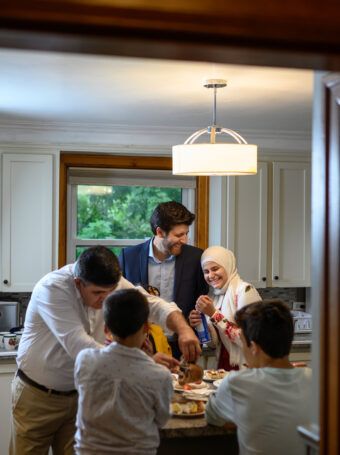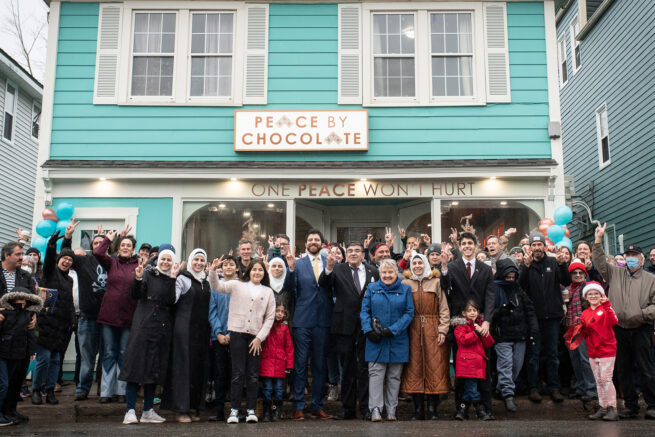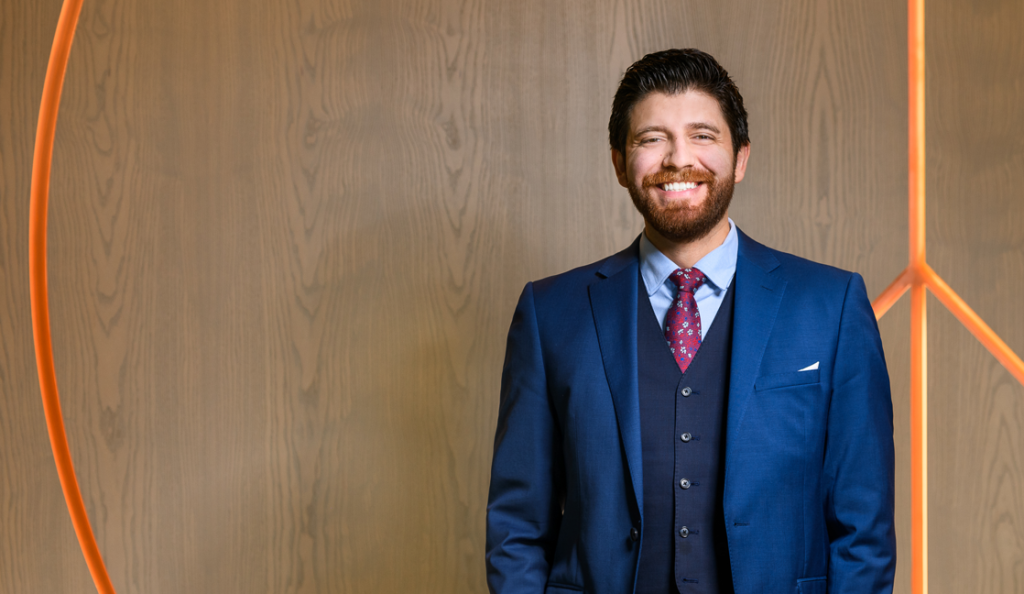When most Westerners think of Syria, they think of its civil war, which has killed over half a million people since it started in 2011. But death-toll numbers that high can overwhelm the senses, turning lost souls into statistics that barely register in Western minds.
Tareq Hadhad is not a statistic. He’s an entrepreneur and public speaker who escaped Syria in 2013. Despite losing his cousin and brother-in-law (both were kidnapped, tortured and killed), when Hadhad thinks of Syria, he doesn’t think of numbers or war. He thinks of family, community — and chocolate, which, for the Hadhads, is kind of all the same thing.
“My grandmother’s home kitchen … inspired my father to leave his engineering degree behind and start on a journey to make chocolate, because he believed that it is a product that spreads happiness, that spreads joy, that really contributes to a much brighter world,” Hadhad says.
Listen to Tareq Hadhad on ECF’s The Well-Endowed Podcast
His mother’s kitchen played a pivotal role, but Hadhad’s father’s “journey of entrepreneurship” started at a cousin’s wedding, where he saw how happy the chocolates made guests. That night changed the trajectory for the entire family, Hadhad says, because “before then, none of my family members were entrepreneurs. None of them believed in entrepreneurship as a power to make a change … to bring in something different to the family’s history. And, since 1986, it became very clear to my family that the connection to us with the community was absolutely through giving back and contributing and making sure that everyone around us is living a happy life.”
But the war destroyed everyone’s happy lives, and in 2012, it also destroyed the chocolate factory Hadhad grew up in. The family continued running it after the war started, to provide employees with jobs and customers with a sense of normalcy. And they chose not to view it in its ruined form before escaping (though they later saw pictures) to keep it a “sweet memory” at a time when things weren’t so sweet.
“I think the harshest part of war is the uncertainty,” Hadhad says. “And I believe that the human suffering happens after the trauma, not before or during it … when someone is missing around the dinner table the day after,” adding that a survivor’s pain only grows when he, she or they escape, “because once you leave, you are disconnected from your roots and disconnected from your homeland.”

Hadhad did not go far before feeling disconnected from his homeland — or his humanity. As one of the thousands of refugees who crossed the border into Lebanon each day, Hadhad found himself at the United Nations High
Commissioner for Refugees, where an officer addressed him by the number on his chest. Hadhad refused to respond.
“I told them, ‘We are not a number. Why are you calling me with a number? I have a name, and you have it,’ — and he did have it, in front of him, but he just preferred to call us by our numbers. It was an eye-opening moment for my family, because when you are in that situation, you just need anything that brings you hope. And I think the moment that we challenged to claim our humanity back, that was the first time when I saw my family hopeful again.”
When the family decided to flee their homeland in 2013, they applied to 15 countries, and the process got even the optimistic Hadhad down. “I tried to go to the U.S., to France, to Spain, to Portugal, to Australia, New Zealand. None of these countries actually opened the doors for us, and I actually didn’t even think about applying to Canada, because I thought, how is Canada going to be different than all of those countries?”
Then Hadhad remembered a cab driver he met in Lebanon in 2014, who had lived in Montreal for 10 years and loved it. Hadhad applied and ended up on the third flight of Syrian refugees to Canada in 2015, who were welcomed by then-governor general David Johnston.
Over the next few weeks, 32 family members followed Hadhad to freedom.
“It feels like a dream, and I’m absolutely very grateful to have made that choice, because coming to Canada is absolutely the best decision I have made in my entire life.”
Hadhad settled in the Nova Scotia town of Antigonish, which welcomed him and his fellow immigrants, “in a way that we have never imagined. We have never imagined that anyone in the world actually would care about us after the war started. Because what the war does, is it just makes you lose your belief and your sense of humanity. It makes you lose the ability to comprehend the idea that, yes, there are caring people around the world, [and] we matter to them. Because the only thing that war does well is make us numbers on the screens.”

By the end of the third week in their new community, the Hadhads were already looking to give back to it. But it wasn’t only because they’re a hardworking, chocolate-loving family that does good by doing good business.
Although we have faced overwhelming support, one of the community members came to me and said, ‘Welcome to Canada, Tareq. I saw your picture yesterday on the front page of the newspaper, but why did you come here to take our jobs? I said, ‘We did not come here to take jobs. We came here to create them.’”
Two months after the Hadhads arrived, a few Antigonishians attended a potluck and tried the first Peace by Chocolate products made on Canadian soil. Then Hadhad brought his family’s treats to farmers’ markets and, by late
winter of 2016, the first Canadian Peace by Chocolate storefront opened, employing community members and fellow immigrants, who welcomed about 100 people waiting for the doors to open that first day.
“It meant a lot to our family that, yes, there are people who care about what we are making, and they want to be a part of it. They want to be a part of that success.”
Success sums up much of Hadhad’s life since then. He now spends much of his time traveling and talking to international audiences, sharing his story of survival and hearing heartbreakingly similar tales in return. But he says the greatest achievement of his life was when he officially became a Canadian citizen in 2020. And for all its awfulness, Hadhad looks at the war as a turning point that sent him on a journey to where he is today.
“Something that kept me going is a quote from a wonderful Canadian that said, ‘Canadians are born everywhere. It just takes them a little bit to get here’. I really keep that very close to my heart, because that’s my story.”
